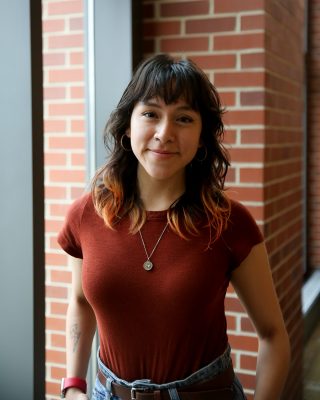Every year Cornell celebrates its graduating seniors at Commencement with their closest friends and families. We also like to highlight a number of seniors online as they transition from college student to college grad and join Cornell’s growing community of alumni.

“Every year since the beginning of my time at Cornell, I have gained experiences in varying ways. These have expanded my knowledge of the professional world and taught me how to succeed after I graduate.”
I learned that there are several paths open to me as an art history major. I was a little nervous as a freshman, fearing that I would be lost and unsure about my future if I pursued this major. All I knew was that I liked art and wanted to study it. Every year since the beginning of my time at Cornell, I have gained experiences in varying ways. These have expanded my knowledge of the professional world and taught me how to succeed after I graduate.
Both [Professors of Art and Art History] Chris Penn-Goetsch and Khristin Landry-Montes have helped me navigate through the field of art history. They taught me to challenge ideas and view things through different lenses. This has helped me grow as an academic and become a bit more well-rounded within the field of art history. In addition, Chris and Khristin have supported and encouraged me to apply for jobs, research, and fellowships that have fueled my interest to earn a master’s degree.
The block plan is a unique curriculum that allows students to work on One Course At A Time for 3.5 weeks. It can be a fast-paced method of learning, but this has worked well throughout my years at Cornell. The structure of each course is slightly different, but they will all immerse students in the topic and readings. In addition, professors will sometimes work with the students and cover points that might have been difficult for the class to understand.
To put it simply, apply for every opportunity you get, and be prepared with asking questions at the end of interviews.